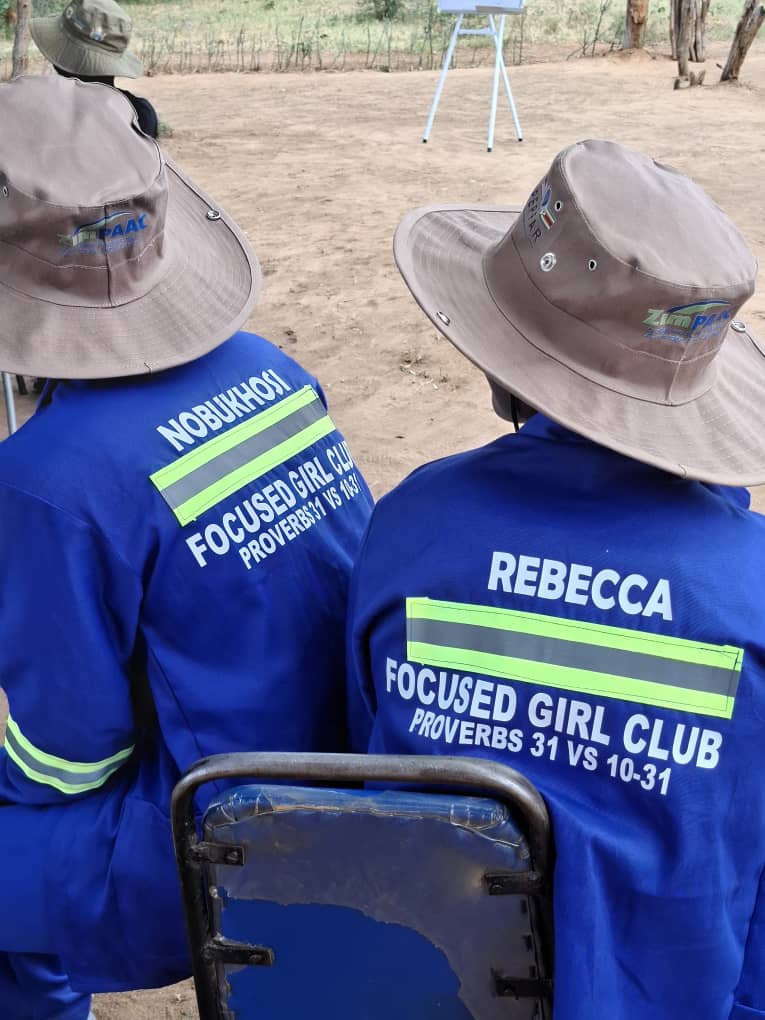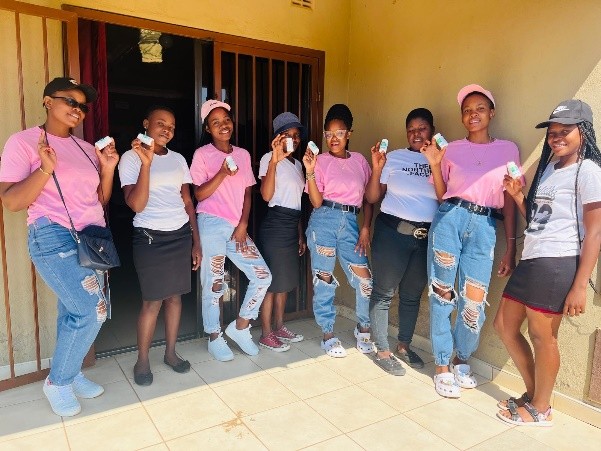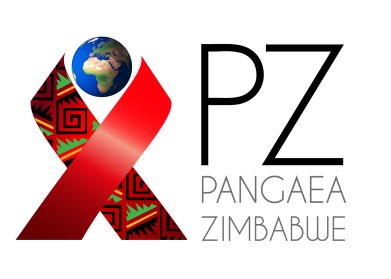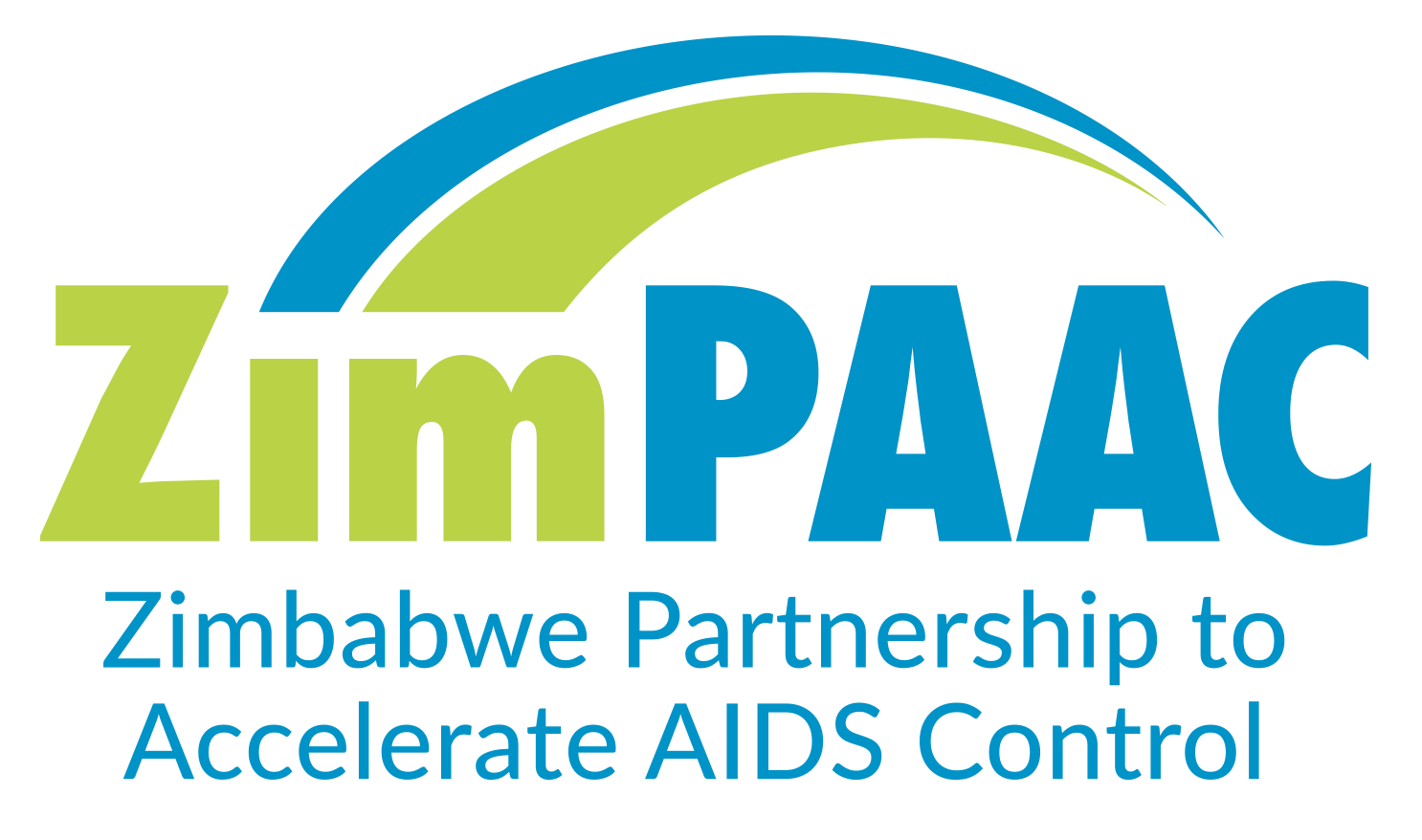
Purpose
The DREAMS (Determined, Resilient, Empowered, AIDS-free, Mentored and Safe) partnership was aimed at reducing the rate of HIV among adolescent girls and young women (AGYW) in Zimbabwe by 40% through improving access to HIV Prevention services DREAMS program, provides young women with the business mentorship and equipment needed to start their own small businesses. Without a steady stream of income, young women in Zimbabwe are more at risk for engaging in transactional sex and transactional relationships for financial stability which can lead to gender-based violence, HIV, and unplanned pregnancies.
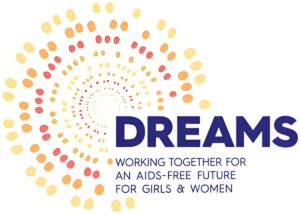
Target Population
- Adolescent girls and young women (aged 15-24 years) at high risk of HIV infection.
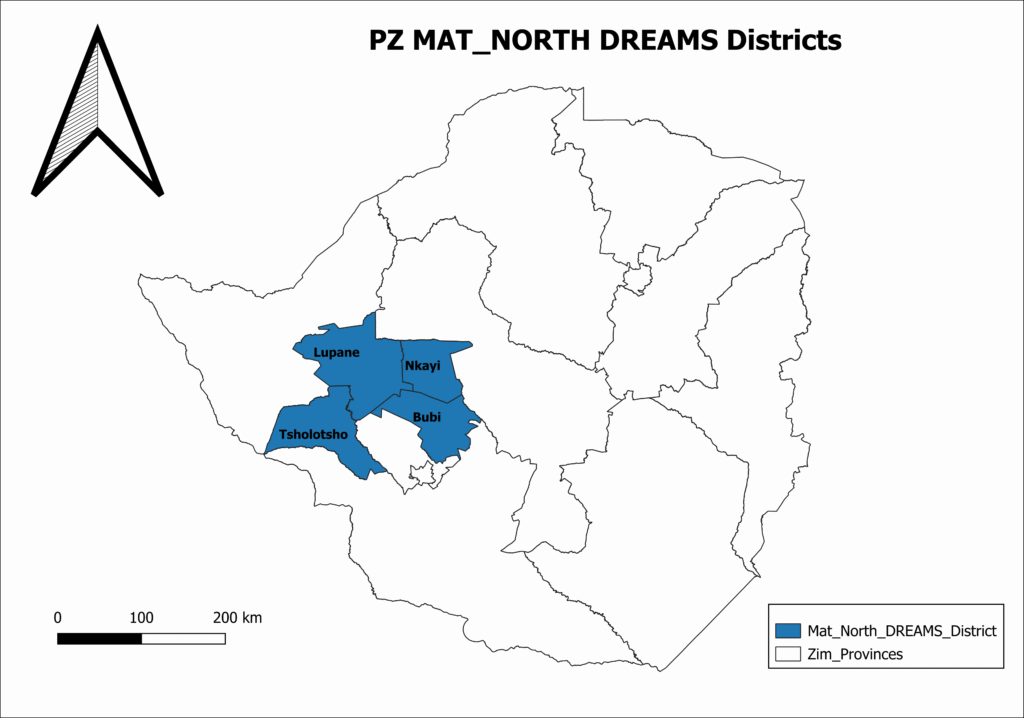
Geographical Location
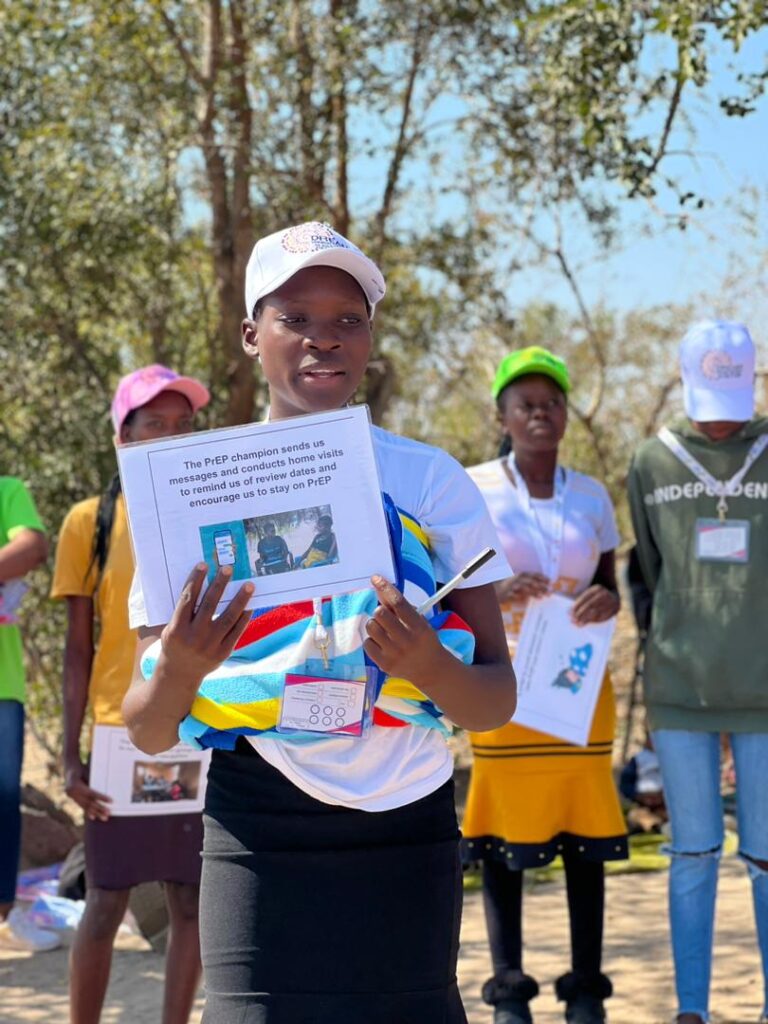
Key Strategies
Pangaea Zimbabwe (PZ), as a key partner in the Zimbabwe Partnership to Accelerate AIDS Control (ZIMPAAC) consortium, supported the implementation of the DREAMS program, an initiative focused on empowering Adolescent Girls and Young Women (AGYW) identified as being at high risk, known as Young Sisters.
Since its inception in 2019, the program focused on reducing HIV incidence among AGYW by integrating HIV prevention, social empowerment, and economic strengthening interventions. Through a community-driven approach, Young Sisters were identified, enrolled, and provided with essential services that holistically addressed their health, safety, and livelihoods.
Comprehensive HIV prevention education: Strengthen knowledge on HIV prevention, sexual and reproductive health, and risk reduction through peer-led education and mentorship.
AGYW-friendly health services: Train healthcare workers to provide youth-responsive, stigma-free, and gender-sensitive services tailored to AGYW.
Social empowerment and gender norms transformation: Foster positive social norms through sexual violence prevention sessions, mentorship, and life-skills development.
Biomedical HIV prevention: Expand access to PrEP and condom distribution as key HIV prevention modalities, supported by PrEP Champions and peer cadres.
Economic strengthening and resilience building: Promote financial literacy, savings, and entrepreneurship among AGYW through Internal Savings and Lending Schemes (ISALS), small business training, and mentorship.
Partnerships and community engagement: Collaborate with health facilities, community leaders, and peer networks to ensure coordinated service delivery and improved community ownership.
Data-driven monitoring: Integrate M&E systems to track progress, assess impact, and continuously refine program delivery.
Major Activities
1. Capacity Building
Trained over 400 healthcare workers from 60 supported facilities in Matabeleland North province to deliver AGYW-friendly services.
Strengthened provider skills in counselling, youth engagement, and gender-responsive service provision.
Built a supportive environment for AGYW to access care with confidence, improving service quality and accessibility.
2. HIV Prevention and Biomedical Interventions
Condom Distribution: Distributed over 30,000 male condoms to AGYW in communities surrounding supported facilities.
Peer cadres engaged in door-to-door and community-based distribution to ensure access and consistent availability.
Activities promoted combination prevention, reduced unintended pregnancies, and lowered STI transmission.
Pre-Exposure Prophylaxis (PrEP):
1,690 AGYW initiated on PrEP across the program areas.
PrEP Champions (PCs) conducted education sessions addressing concerns around adherence, side effects, and safety during pregnancy and breastfeeding.
Supported ongoing counselling, follow-up, and peer support to enhance adherence and continuity.
3. Social Empowerment and Violence Prevention
Delivered sexual violence prevention sessions and mentorship on building self-esteem, healthy relationships, and assertive communication.
Promoted positive social norms and gender equality through community dialogues, group reflections, and peer education.
4. Economic Strengthening (ES)
Empowered Young Sisters to reduce economic and social vulnerabilities through structured economic strengthening interventions.
Provided training in entrepreneurship, record keeping, marketing, and business proposal development.
Facilitated Internal Savings and Lending Schemes (ISALS) and linked participants to community business support systems.
Promoted financial independence, income generation, and household stability.
5. Community Engagement and Support Networks
Partnered with community leaders, caregivers, and peer mentors to enhance program reach and sustainability.
Linked AGYW with need-based clinical services including HIV testing, PrEP, STI screening, and family planning.
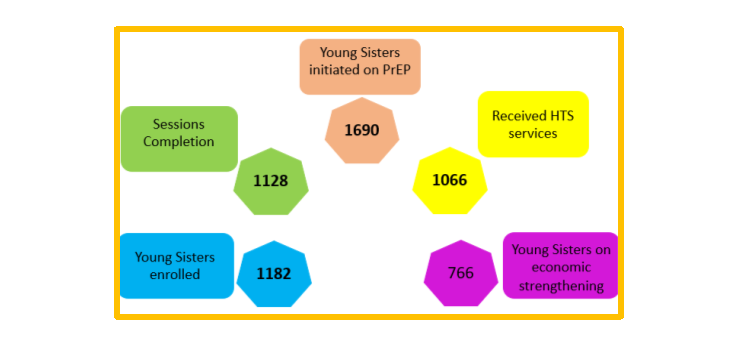
Outcomes
Enhanced health workforce capacity: 400+ healthcare workers trained across 60 facilities, resulting in more accessible, youth-friendly SRH and HIV services.
Increased HIV prevention uptake:
1,690 AGYW initiated on PrEP with strengthened adherence support.
30,000+ condoms distributed, significantly improving access to HIV prevention tools.
Improved SRH knowledge: Greater awareness among AGYW on PrEP, STI prevention, pregnancy prevention, and healthy sexual behaviour.
Strengthened community trust: Peer-led engagement and facility linkages improved confidence in public health systems among AGYW.
Economic empowerment: Increased AGYW participation in income-generating activities and ISALS, reducing dependency and vulnerability to risky behaviour.
Social transformation: Improved gender-equitable attitudes, increased agency among young women, and reduced tolerance of sexual violence within communities.
Holistic well-being: Integration of health, social, and economic support led to improved confidence, self-reliance, and overall quality of life for participants.
Resources

